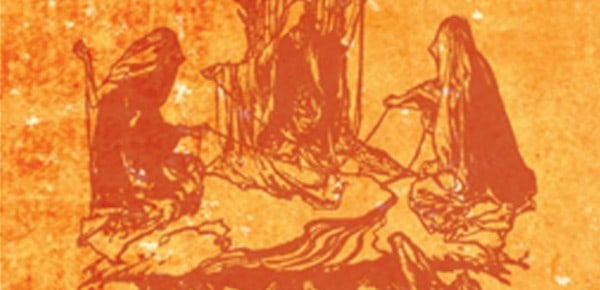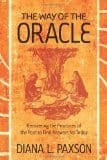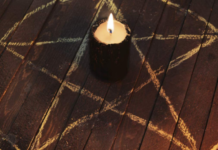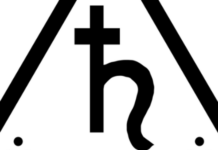
 The Way of the Oracle, by Diana L Paxson
The Way of the Oracle, by Diana L Paxson
Weiser Books, 9781594774904, 247 pp., 2012
This book is an excellent follow up to Diana Paxson’s previous work, Trance-Portation: Learning to Navigate the Inner World (Weiser Books, 2008).
The Way of the Oracle is divided into two parts. The first explores some of the historical evidence for oracular practice in Celtic, Greek, and especially Norse cultures. The second section has more of a DIY how-to quality. Paxson has made a very complicated subject engaging and accessible without ignoring the historical and practical problems that exist.
I love that the first section is chalk-full of historical quotes and references paired up with personal anecdotes which connect the background material to lived experience. The historical and mythic examples from Norse and Greek culture are excellent, and the author makes a valiant effort to include Celtic material where possible. Unfortunately, despite having strong traditions of prophesy and second-sight, the Celts did not have many oracular sites, like the Greeks, or travelling oracles with elaborate rituals, like the Norse. While it is not suitable to group ritual, a nod to the tradition of kings, heroes, and regular folk meeting receiving prophesy otherworldly beings at certain times and places (such as late on lonely roads or at dawn on the liminal ramparts) would have been nice.
Regardless, she does a good job of capturing enough historical and mythic material to give it context and the personal stories really add an element of humour and humanity to what can be a rather abstract exploration of the distant past. Paxson’s style reminds us that there is continuity in the human experience, even if we don’t have all the details.
She also does not shy away from the problematic nature of prophesy and its role in the life of the querent. What happens when the oracle is not interpreted correctly? What happens when the oracle is just wrong? Is the role of the oracle to predict a supposedly fixed future, or is it a forecasting of probabilities and therefore informing the various futures possible?
Section Two provides practical exercises, check-ins to assess preparedness, and some journey and ritual format suggestions. The journey descriptions offer suggestions for Celtic, Greek, Norse, and a sort of non-culturally specific form. The book includes some beautiful poetry, some of which is intended for ritual, and some of which serve as examples of how the answers received in ritual can become an art-form in itself — making it both a thing of beauty and easier to remember.
For a practitioner with a lot of practical trance experience, I think The Way of the Oracle can stand alone as it has a lot to offer in terms of cultural background and contemporary reports of how others have experienced oracular states. Likewise, for the idly curious, this book can be read on its own just for its entertainment value. But if you’re more than curious, but less than an expert, would not recommend The Way of the Oracle without the details and exercises in Trance-Portation. The author is also well aware of this fact, given the number of references to Trance-Portation throughout section two of this book. Having read them both, I’m actually a little surprised they were not published as a two part set.
While I was reading this book, one of the things that occurred to me, is that from a purely individual and utilitarian standpoint – where getting a practical answer is the only goal – oracular ritual is unnecessarily elaborate and cumbersome. It would be a far better use of time and effort to just do a rune or tarot reading, and get on with life. However, getting a practical answer to a particular question is not actually the point of oracular ritual. It may be the ostensible reason, and it may be a secondary gain from having participated, but the primary gain is something else completely. All at once, oracular ritual provides grand theatre, participation in something greater than oneself, personal enrichment, community cohesion, and a shared link to our ancestors. This is so much more than what can be had from a private a rune or tarot reading, but also may or may not be more than what is required in a given instance or by a given individual seeking answers.
That said, I believe oracular ritual is a layered experience that blesses the seer and all the participants with more that just a practical answer to a niggling question, and this book provides insight into what that participation can look like. I don’t think Paxson says this in the book, but everything in it lead me in this direction, and over all the book paints a plush and vivid description of what that can look like.
Over all, I found The Way of the Oracle, engaging, entertaining, and informative. The generally encouraging tone of the book asks the readers to trust their own senses and intuition, striking a good balance between advocating experimentation and advocating responsible behaviour; since altered states of consciousness are not without their risks.








